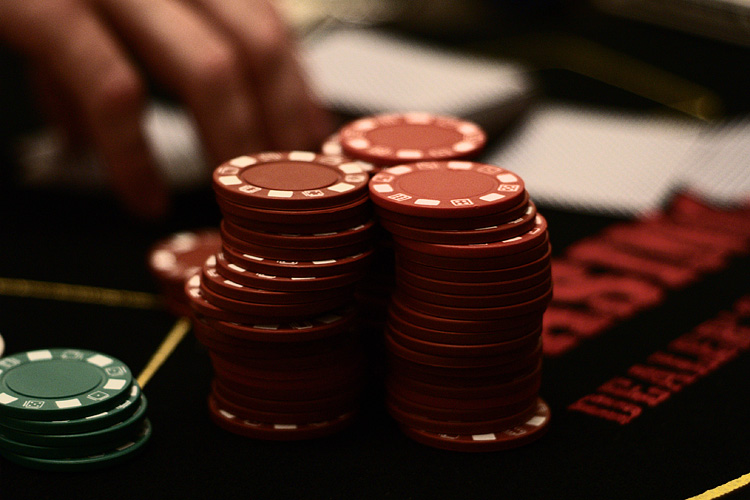In his recent review of Samuel Gregg’s new book, Adam MacLeod explains and affirms Gregg’s learned and well-argued defense of the role of banking and finance in serving the common good. As MacLeod notes, such a defense is needed due to widespread negative perceptions of our current capitalist system and the extreme inequalities it allows.
The surprising success of Bernie Sanders’ presidential candidacy, coming on the heels of the Occupy Wall Street movement, shows the extent to which Americans have become disillusioned by an economic system that has given rise to such a staggering inequality of wealth. Election season always reminds us, moreover, that very large amounts of money tend to coincide with very large amounts of political influence, even in ostensibly democratic societies like our own.
Even if the large amounts of money that are in the hands of bankers and financiers can be used to further the common good, many—perhaps most—Americans think that the disparity of wealth and influence between the super-rich and everyone else is troubling in itself. A ratio of ten or twenty to one might be acceptable. Ratios of 100, 1000, or 10,000 to one are more difficult to swallow. Such disparities seem to be reflective not merely of real differences in ability or merit, but also of the idiosyncrasies of our capitalist system. But what should we do about it?
Sanders, Hillary Clinton, and most liberals think that the solution is to tax the super-rich more so that they can pay their fair share of government-run programs designed to help the rest of us. Yet there is little reason to believe that this strategy would substantially narrow the wealth and influence gap between the super-rich and the non-super-rich. There may be more and better-funded government assistance programs for ordinary citizens, and the super-rich may have less money, but an enormous gap between the two would remain. Many of the super-rich are not particularly bothered by the prospect of increased tax burdens—they know that they will remain the super-rich, and everyone else will remain everyone else.
Start your day with Public Discourse
Sign up and get our daily essays sent straight to your inbox.The solution to the problem of economic inequality in the US is not to take from the rich and give to the poor. Instead, we need to realize that much of the unimaginable wealth possessed by those such as Bill Gates, Mark Zuckerberg, or Donald Trump is, in fact, not just unimaginable but imaginary. It’s not real money at all.
What Is Money?
We have come so far from our economic origins that we have forgotten what money is. For most of us, money seems to consist of numbers on a screen that can be stored in a plastic card. For the super-rich and their bankers, money is like a pile of poker chips. Neither provides an accurate window to the reality underlying economic exchange.
The purpose of money is to serve as a medium for the voluntary exchange of goods and services. Money isn’t necessary for exchanging things, but it makes exchange easier in communities involving multiple exchanges among many individuals. Two people on a desert island might exchange various goods with each other, but they would have no use for money. In early America, currency—both English and Spanish—was only one among a number of ways people could “pay” for what they needed. Money is a tool for exchange, much like a paintbrush is a tool for painting. The goal is the exchange of real goods and services; money is the agreed-upon, symbolic, intersubjective means.
In order to serve its purpose, money should be a durable and relatively scarce object. Durable, so that it can provide value that outlasts any of the goods or services for which it is exchanged; and scarce, so that one need not haul truckloads of it to the market. The durability and scarcity required by money’s purpose is best filled by precious metals such as gold, which is why gold has so often served as a basis for currency throughout history.
In our modern societies, we have come a long way from this original development of money. First, technological advances have seemed to obviate the need for precious metals to serve as currency. The printing press opened the way for paper money, and then the tech revolution of the past few decades has largely replaced paper with numbers in a computerized ether. Now these serve the functions of durability and scarcity that precious metals used to. Second, money’s tie to real goods and services has become significantly diminished. The casino-style stock exchanges of modern nations have brought about economies in which money simply begets money or disappears, without direct reference to any good or service whose value it represents.
The Problem with Money Today
All currency-based economies are to some extent artificial and removed from the basic reality of exchanging goods and services. Yet the artificial or conventional aspect of a currency-based economy originally existed to facilitate and support the basic reality of exchange, not to supplant it. An economy is a community defined by the exchange of goods and services. Money is the medium by which these goods and services are exchanged. Whenever money shows up on the end of the equation rather than only in the middle—meaning that money is both the medium of exchange and one of the goods exchanged—its value and purpose are distorted.
When money is treated as something it’s not, problems tend to arise. If someone has the ability to exchange money for more money, the value of his original money is significantly—exponentially—greater than the value of money that is not able to be exchanged in this way.
In our advanced modern economies, money is often found on the outside of exchanges. Bankers and financiers, however much good they can do with their wealth, have the sole privilege of using money outside of the purposes for which it needs to exist. The most obvious example is the lending of money at interest. Another example is the stock exchange, where money goes in and either disappears or generates more money. The partial ownership of a company or fund that occurs in the meantime is usually a legal fiction. It is an ownership that most often carries no responsibility or agency in the enterprise, and hence it involves no ownership at all in its true signification. It is, like the lending of money at interest, tantamount to gambling: it is a bet that the money will multiply of itself rather than an exchange of money for something else. The $5 that turns into $500 at a casino—or in the hands of a skillful investor—is worth much more than the $5 that is exchanged for a loaf of bread.
As a result of this, money ceases to “behave” as it should on its own. Large amounts of money can generate ever larger amounts without ever being received as an exchange for a real good or service, while large amounts of real labor or goods produced are often exchanged for relatively small amounts of money. As a result, governments play a more active role in regulating the economy in order to make money behave as it needs to: as a reliable measure of exchanged goods and services. In practice, this usually means that the super-rich in and around government have to do just enough for the poor and middle classes to keep them from mounting an effective resistance to their artificial economic world.
Returning to a Real Economy
But what would it mean to transition to a “real” economy? And would such a transition ever be feasible? It is one thing to say that banks and stock exchanges need to transform their fundamental purposes, but it would be quite another to effect this reformation in practice. Such a reformation would, moreover, require intrusive government action in the short term in the interest of significantly reducing governmental control of the economy in the longer term.
First, the investment industry would need to be significantly limited in its ability to package and trade stocks. These limitations would have the goal of transforming the investment banking industry from a standalone outgrowth of the sort of money multiplication described above to a simple consultation service assisting individuals in evaluating their prospective ownership of specific companies. In this way, individuals would exchange their money for a consultation service and real ownership of a company, and they might later sell their real ownership of a company to another individual who is acting similarly. Buying a stock would become less of a bet and more of an investment in a company’s success.
Secondly, banks would need to be significantly curtailed in their lending practices. As the financial guru Dave Ramsey often says, credit cards will someday be viewed as the cigarettes of the financial industry. They are a particularly egregious example of the way in which money generates more money of itself. As a companion to these reforms, the gold standard, or something similar, could also be revived. For all of the potential problems that many economists argue might result from this, a return to the gold standard or something like it would contribute substantially to the reality of our economy.
These are extreme measures in today’s advanced global economy, but given the seriousness and visibility of the problems that our economy has perpetuated and engendered, they are perhaps not too extreme. There will always be economic inequalities and problems in our country and in the world. In a real economy with real money, though, at least these would be closer to real inequalities and real problems. And this, I suspect, is what the super-rich are really afraid of.













